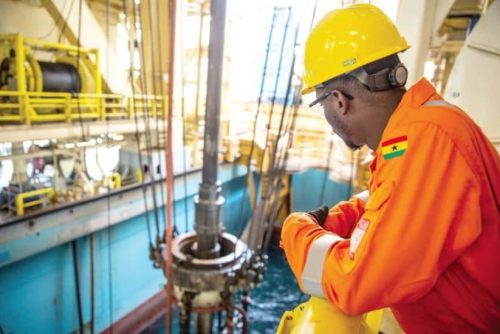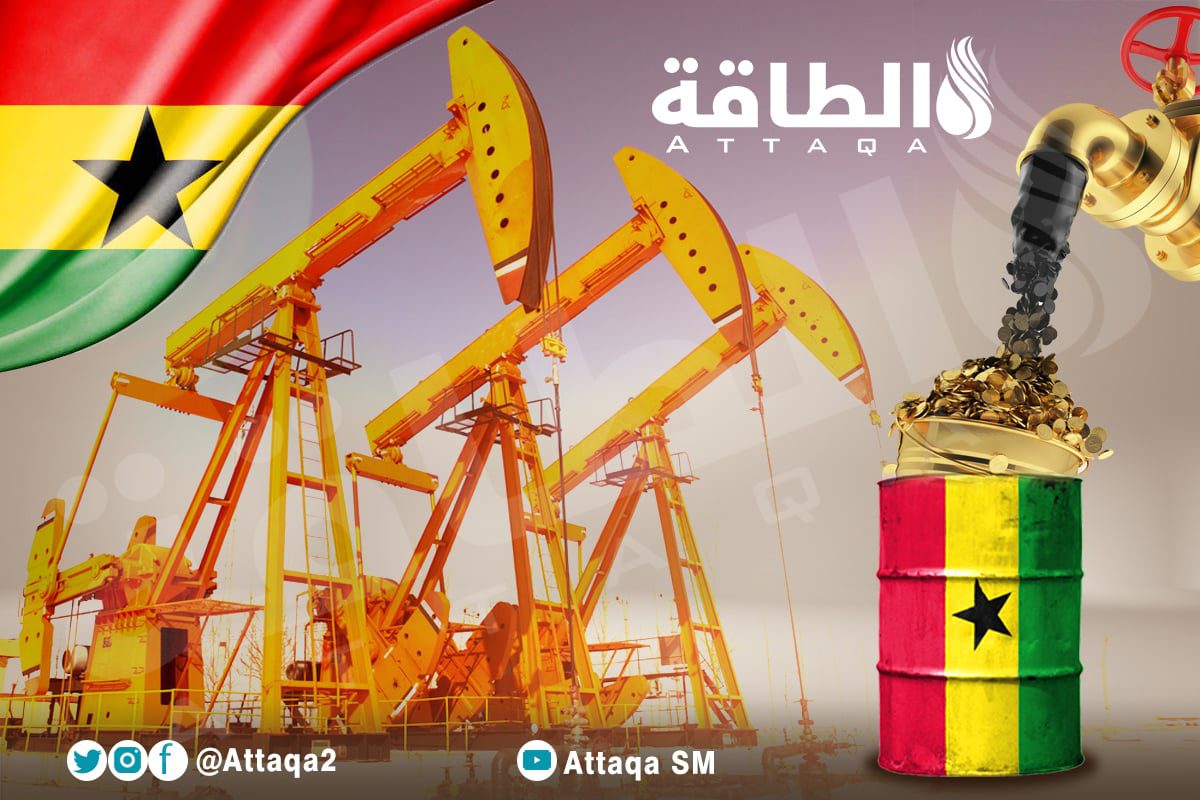Ghana’s oil revenues rose to an all-time high in 2022, with the government taking in a total of $1.43 billion.
However, oil production in the country declined by 6% on an annual basis to 51.76 million barrels last year, or about 142 thousand barrels per day, according to what was reported by the Public Interest Accountability Committee, which was reviewed by the specialized energy platform.
In its latest report, the committee attributed the decrease in production to the postponement of new drilling operations, especially by the Italian company Eni, whose activities are a strength for the government of the West African country, according to what was reported by the Energy Voice platform.
Eni challenges to oil production in Ghana
Italy’s Eni has submitted an evaluation program for the Akuma and Iban discoveries, according to the report by Ghana’s Public Interest Accountability Commission; Its evaluation plans must be approved by the Oil Commission to allow for the next step.
Eni is operating in the Cape Three Points Block 4 area, in which it is making significant progress, while a number of other exploration plans off Ghana have been delayed and appear likely to face further delays.
Eni also drilled the “Abrokoma-1X” well, at a depth of 606 meters of water, and completed work on it in September 2022.
The Public Interest Accountability Committee said that while the well was technically a discovery, it was not sufficient for an independent assessment.
One potential challenge to Eni’s plans is the demands of a consolidation agreement between its Sankofa field and local company Springfield’s Avina field, as oil fields that overlap each other must unite in order to reduce production costs.
Eni and its Dutch partner Vitol argued that there was no basis for describing Avina’s discovery as a commercial product, and that the order from the Energy Ministry to bring them together was premature.
A court order halted payments to Eni and Vitol in July 2022, although the companies are working to overturn that ruling.
Delaying Ghana’s oil production plans
In the same context, the plans of other oil production companies in Ghana witnessed a decline, as the “Omni International Petroleum Development” company planned to drill the “Kosya-1X” exploration well in the last quarter of 2022, in the central Tano block.
However, the Public Interest Accountability Committee stated that the company has rescheduled work to the second quarter of this year (2023); Omni said that for this step to move forward, it must find a suitable drilling rig.
OSWT&EK, which operates in the Southwest Tano offshore area, also postponed its Mansonia-1X well; It intended to drill for the well by the end of 2022, but it returned it to the second quarter of this year (2023).

Likewise, Echo Atlantic moved the deepwater well, Dawadawa-1X, at Cape Three Points West.
Media Development is operating on a similar schedule reported for its own exploration well, in the East Cape Three Points area.
The Public Interest Accountability Committee said New Explorers is in talks about a first licensing round.
The government’s negotiating team is in talks with Eni, Vitol Upstream, SinoC International, Resource Biz International, Coca Energy and First E&P.
However, the Public Interest Accountability Committee reported that no progress was made in this regard in 2022.
Crises of the Ghana National Oil Company
The Public Interest Accountability Committee’s report also raised a number of concerns about the management of GNPC’s revenues.
The company received $38.8m for gas a year, which it did not pay into the oil holding fund, according to information monitored by the specialist energy platform.
The company financed the construction of a road in the western corridor, while the committee said that the government, not the national oil company, should finance it.
The Ghana National Oil Company also refused to send proceeds from its subsidiary, Jubilee Oil Holding Ltd., to the oil holding fund, as Jubilee Oil received $272.7 million in the year.
The Ghana National Oil Company uses Jubilee Oil to finance operations not included in its spending plan.
The Public Interest Accountability Committee also reported that total spending on decommissioning the Saltpond field was $26.64 million for the year, $3.23 million higher than approved in the action plan.
related topics..
Also read..

Leave a Reply